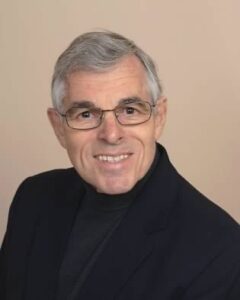Rheumatologists who are outstanding clinicians, provide consistently exceptional care to patients and serve as role models for colleagues and trainees are in the spotlight in our Lessons from a Master Clinician series. Here, we offer insights from clinicians who have achieved a level of distinction in the field of rheumatology.
Gary Hoffman, MD, MS, MACR, is a professor of medicine at the Cleveland Clinic. After beginning his career at Dartmouth-Hitchcock Medical Center, Lebanon, N.H., in the U.S. Army and at the Mary Imogene Bassett Hospital, Cooperstown, N.Y., he joined Anthony S. Fauci, MD, director of the National Institute of Allergy and Infectious Diseases (NIAID), at the National Institutes of Health (NIH) as the head of the Vasculitis and Related Diseases Section from 1986–92.
In 1992, Dr. Hoffman became chair of the Department of Rheumatic and Immunologic Diseases (1992–2008) at the Cleveland Clinic, where he held the Harold C. Schott Endowed Chair. He is the founder of the Cleveland Clinic Center for Vasculitis Care and Research, founder and past chair of the International Network for the Study of the Systemic Vasculitides (INSSYS) and professor emeritus of medicine at the Cleveland Clinic Lerner College of Medicine.
He has led investigations of new therapies for vasculitis and coordinated INSSYS-based multi-center studies of diagnostic laboratory and imaging tools to assess vasculitis disease activity.
He has received the NIH Director’s Award, the NIAID Director’s Award, Wegener’s Foundation Award, the William Ischmael Award, the Pemberton Award, the Ira Goldstein Memorial Lecture Award (NYU), the Sam and Maria Miller Award for excellence in clinical research and others.
Dr. Hoffman is a former ACR Board member, was the 2010 ACR Distinguished Clinical Investigator and is a Master of the ACR.
The Rheumatologist (TR): In your opinion, what makes for a master clinician?
GH: I don’t know about master, but anyone entrusted with another’s healthcare has responsibilities I hope we all embrace: lifelong learning, curiosity, humility and a willingness to lose sleep over difficult, unsolved problems. I remember a mentor telling me, when I was a medical student: ‘It is important to not get too close to patients.’ That was terrible advice. As a patient, I want to feel close to my doctor and to know that, if my problems are unresolved, they care and will be losing sleep over me.
When I was in my residency and fellowship at Dartmouth, we had little to offer some patients with autoimmune diseases, such as progressive systemic sclerosis and even rheumatoid arthritis. Those were the days of gold injections and penicillamine, drugs that caused much toxicity and had modest, if any, benefit. Many patients in our waiting rooms had wheelchairs or other assistive devices, had scars over joints that were the objects of failed surgeries and had reason to lose hope. It was also the early days of joint replacement.




